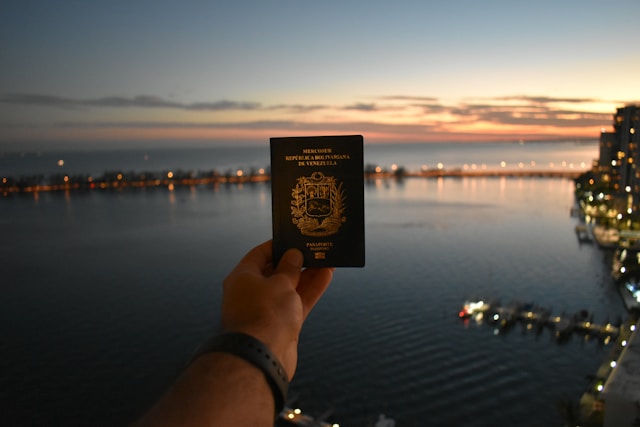Traveling internationally is a dream for many, but the biggest challenge often lies in securing visas. Long application processes, expensive fees, and unpredictable approvals can sometimes take away the excitement of a trip. That’s where visa-free travel becomes a game-changer. Being able to visit a destination without applying for a visa saves both time and money while giving travelers the freedom to explore new places spontaneously. Whether you’re a business traveler, a student, or someone simply looking for a vacation abroad, understanding visa-free countries for your passport can help you plan stress-free journeys.
What Does Visa-Free Travel Mean?
Visa-free travel means you can enter a country without applying for a visa in advance. However, it’s important to note that visa-free entry is not the same as visa-on-arrival or an e-visa. With visa-on-arrival, you still need to obtain a permit when you land, and with e-visas, you have to apply online before traveling. Visa-free entry is the most convenient because all you need is a valid passport, proof of onward travel, and sometimes evidence of sufficient funds. Most visa-free agreements also limit how long you can stay, typically ranging from 14 to 90 days, depending on the destination.
How Passport Ranking Works
Passport strength or passport ranking is determined by the number of countries a passport holder can visit without needing a prior visa. Organizations like the Henley Passport Index use global data from IATA and government policies to calculate rankings. The more visa-free countries a passport allows you to enter, the stronger it is considered. For example, a top-ranked passport can grant access to over 190 destinations, while a weaker passport may only provide entry to less than 30. These rankings are updated regularly based on diplomatic relations and visa policy changes, making them an essential tool for travelers who want to understand their global mobility.
Top Visa-Free Countries and Strong Passports
In 2025, Singapore continues to hold one of the strongest passports in the world, granting access to nearly 194 destinations without requiring a visa. Japan, South Korea, Germany, and several EU countries also remain at the top of the list with extensive visa-free travel privileges. For travelers with these passports, spontaneous trips to Europe, Asia, or the Americas become much easier, since most tourist destinations are already covered.
European Union passports are particularly valuable because they not only allow visa-free entry across the EU and Schengen area but also to many countries in the Americas and Asia. For frequent flyers, these strong passports represent unparalleled travel freedom, helping them avoid the hassle of lengthy embassy visits.
Passports with Moderate or Limited Visa-Free Access
Not every passport offers the same level of global access. For instance, India’s passport currently allows visa-free or visa-on-arrival access to around 59 destinations. While this is a significant improvement compared to previous years, Indian travelers still need to apply for visas when visiting popular destinations like the United States, Canada, or the majority of Europe.
On the other end of the spectrum, countries like Afghanistan and Syria have some of the weakest passports, offering visa-free access to fewer than 30 destinations. This limitation makes international travel challenging, as visa applications become a necessary part of nearly every journey. Such restrictions highlight the importance of international diplomacy and bilateral agreements in expanding travel freedom for citizens.
Regional Differences in Visa-Free Travel
Visa-free destinations vary widely depending on the region. European passports are generally the most powerful, offering extensive access across continents. Asia-Pacific nations like Singapore, Japan, and South Korea also lead in global mobility, giving travelers from these countries a wide range of options.
In contrast, many African and Middle Eastern countries still face restricted access due to political and economic challenges. However, some nations in the Gulf, like the United Arab Emirates, have made significant progress in expanding visa-free agreements with both Europe and Asia, improving their ranking over the years.
Benefits of Knowing Your Visa-Free Options
Understanding the visa-free countries available for your passport offers multiple benefits. It allows you to plan trips without worrying about last-minute visa approvals, making spontaneous travel possible. It also reduces costs since visa fees can quickly add up, especially for frequent flyers.
For students and professionals, having a strong passport means easier access to international opportunities such as education, work, and conferences. For businesses, visa-free travel provides flexibility, allowing entrepreneurs and executives to attend meetings abroad without delays.
Practical Tips for Travelers
Even if your passport allows entry to visa-free destinations, there are still rules to follow. Always check the latest immigration guidelines of your destination before traveling, as visa policies can change suddenly. Make sure to confirm how long you are allowed to stay, since overstaying can lead to penalties or bans. Carry proof of onward travel and enough funds to support your stay, as some countries require this at immigration checkpoints.
It is also wise to consider travel insurance and health requirements. Many countries demand proof of vaccinations or health coverage, especially after the global pandemic, so being prepared will make your journey smoother.
The Future of Passport Power
Global mobility is constantly evolving, influenced by diplomacy, international relations, and new technologies. Electronic Travel Authorizations (ETAs) and e-visas are becoming more common, bridging the gap between visa-free and visa-required travel. As countries sign more bilateral agreements, we can expect shifts in passport rankings.
In the future, stronger passports may continue to expand their reach, while countries with weaker passports may gradually gain access through improved international cooperation. Staying updated with the latest passport ranking reports is key for anyone who travels frequently.
Conclusion
Visa-free countries for your passport can open doors to easier, cheaper, and more flexible travel. Whether you hold one of the world’s strongest passports or a mid-ranking one, knowing your options helps you plan more efficiently. By keeping track of your passport ranking and understanding global mobility trends, you can take advantage of visa-free travel and explore the world with greater freedom.

